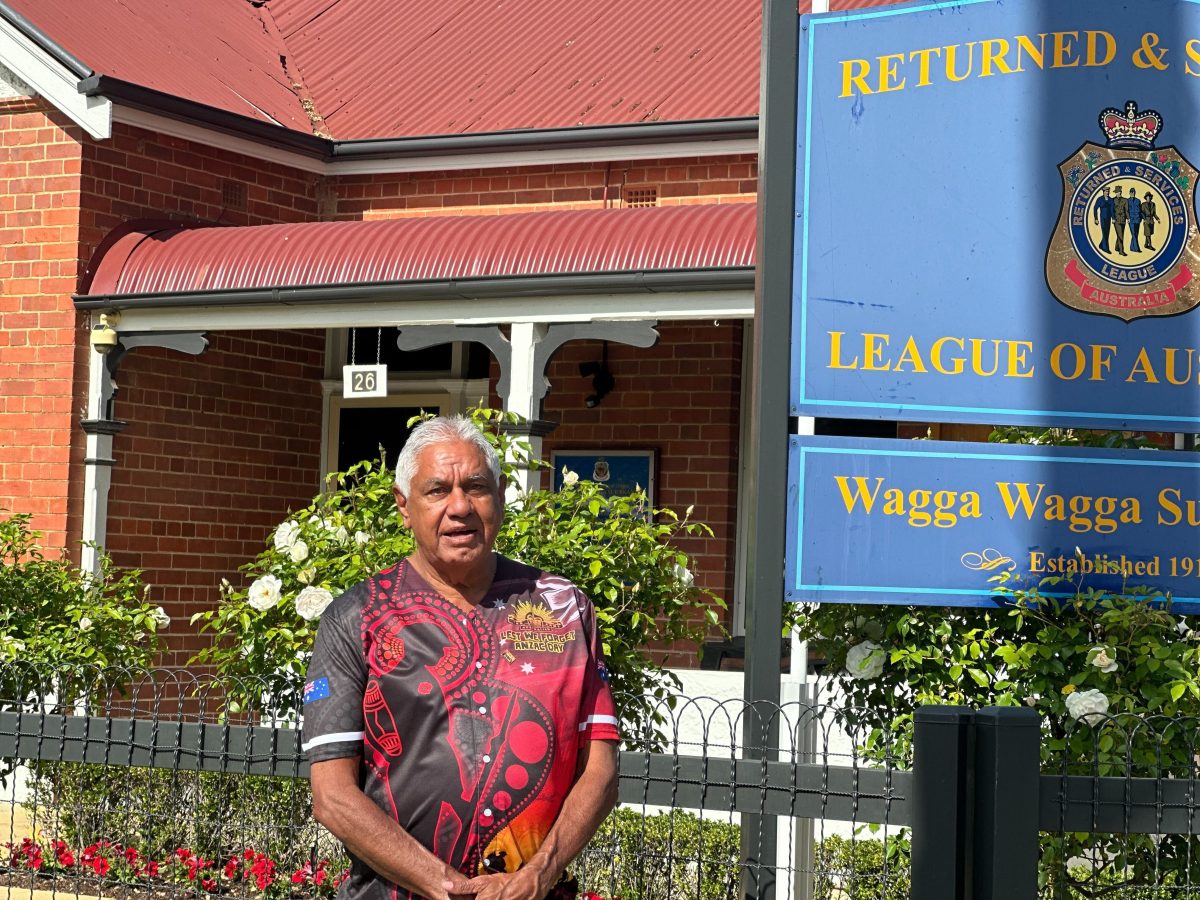
Joseph Flick is on a mission after seeing what happened with his late grandfather. Photo: Erin Hee.
Joseph Flick’s grandfather Mick risked his life fighting for his country during World War I. But he was treated like dirt when he returned home.
“Sorry, mate, you’re Aboriginal. You’re not allowed in the club, but if you go around the back, we’ll hand a glass of beer out the window for you,” he was told after an ANZAC march.
Now Joseph, a proud Gomeroi and Yullaroi man, is on a mission to connect families of First Nations veterans with their lost histories and shine a light on how they were treated post-war.
Mr Flick first reached out to the Wagga RSL sub-Branch to participate in this year’s Anzac Day. One thing led to another, and he found himself giving a presentation on his work ‘Bringing Their Spirits Home’ in Wagga last week.
He was awarded the Winston Churchill Fellowship in 2019 for his passion in telling the stories of Aboriginal soldiers in overseas campaigns during WWI, but his work started with a footy trip to Villers-Bretonneux, France in 2013.
He saw an Aboriginal flag and a single paragraph noting that “at least 289 Aboriginal men from Australia came and fought in WWI” in a museum with only two names mentioned.
“I said, ‘This doesn’t do justice to our story. Can I come back next year and help put something together?'” he said.
Despite not speaking any French, he returned alone in 2014 and 2015.
Accommodation and travel expenses were always an issue, but the fellowship allowed him to continue.
“It gets very emotional to spend around 60 days visiting a cemetery to go and see people who are dead,” he said.
“People usually go, ‘What sort of project is that?’
“Well, it’s an important project as an Aboriginal person and connecting them back to Country. We haven’t forgotten you.”
Mr Flick’s journey of reconciliation started way before that.
When he was around six, he watched his grandfather Mick march on Anzac Day and get refused entry at the local RSL.
He could only imagine how devastated Mick felt.
“There was no black and white on the battlefield,” he said.
“If he got wounded, his mates would patch him up and do something. He would have done the same thing. When they come back to Australia, it’s black and white again.”
Sometimes he would get asked why his grandfather chose to enlist.
“I don’t know,” he admitted.
“For the blokes who came back home, they were treated very ordinarily. There was a lot of discrimination – you’ve seen with the referendum and even the way some politicians carry on.
“The only positive spin that our soldiers received when they joined the Army was that they were equal.
“They were equal in the trenches, getting equal wages, and they were being looked after.
“So that gave them that equal standing while you’re on the battlefield, but when you came back home, you were down here again.”
Now, he is on a journey to bring home photos of headstones and stories of bravery and connect Aboriginal soldiers’ descendants to their legacies.
“I had the names of who they are and where they’re buried, it was just the logistics and getting around,” he said.
“There’s just a whole history of them, all lying over there. They have been very well cared for since the [people in France, Belgium and England] buried those soldiers.”
Mr Flick treated each visit like a ritual: he would start by draping the Aboriginal flag over the tombstones, then replace it with a wreath or flowers and cover it with the Australian and Aboriginal flags.
He would play the clapsticks in accordance with the fallen soldiers’ ages.
Some were as young as 19, so he would play the clapsticks 19 times in their memory, followed by the Ode of Remembrance as a way of saying: “We remember you. Your family knows where you are now and they love you.”







